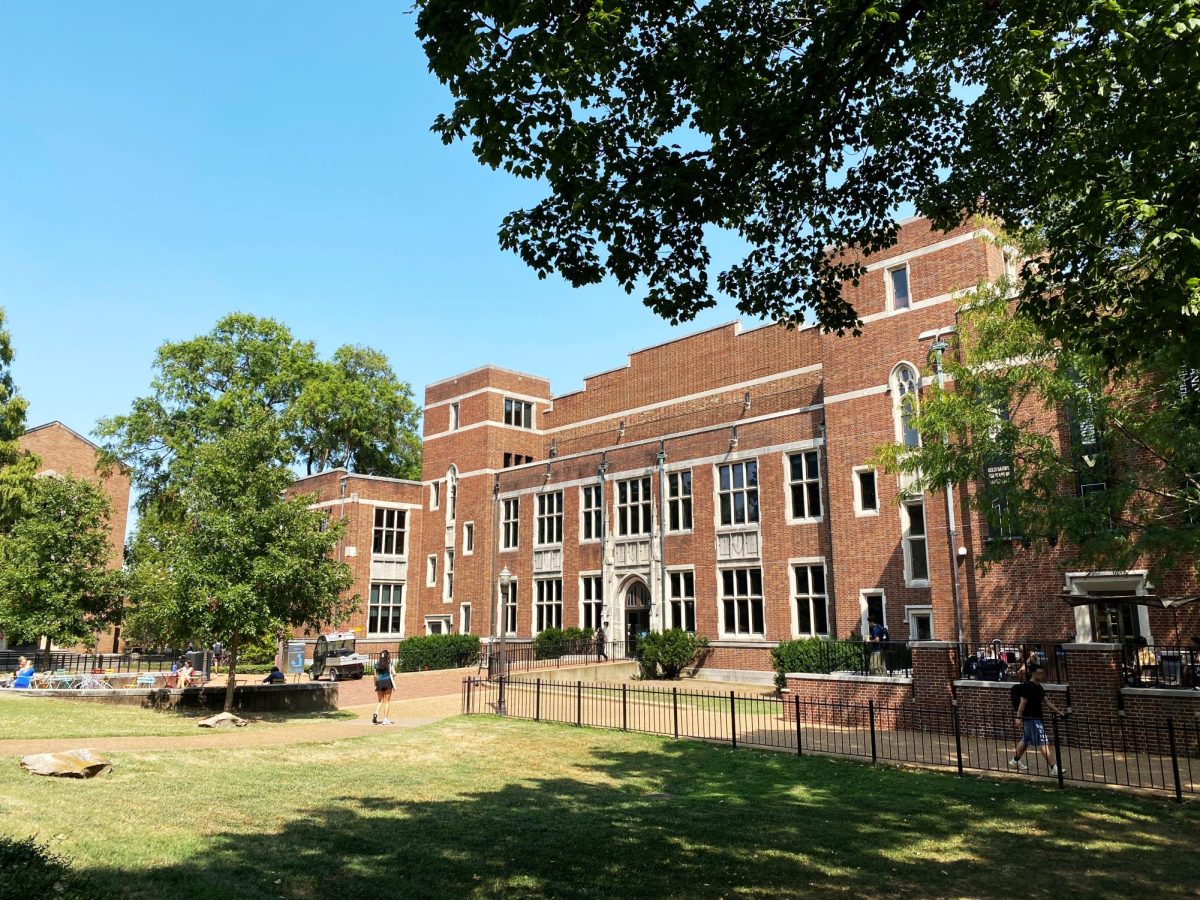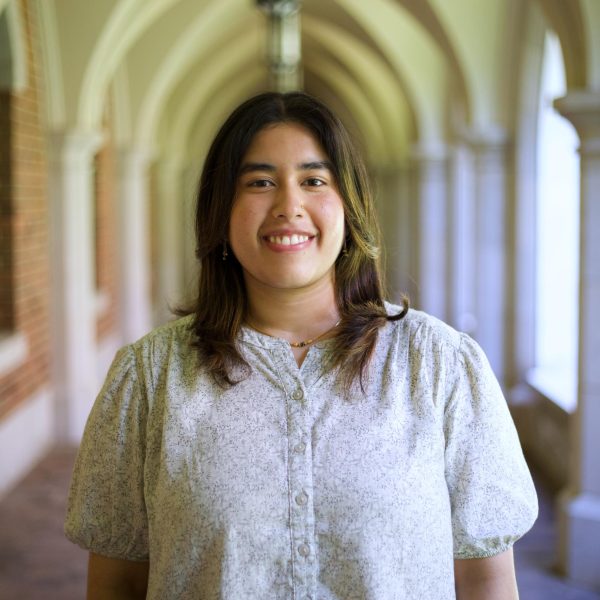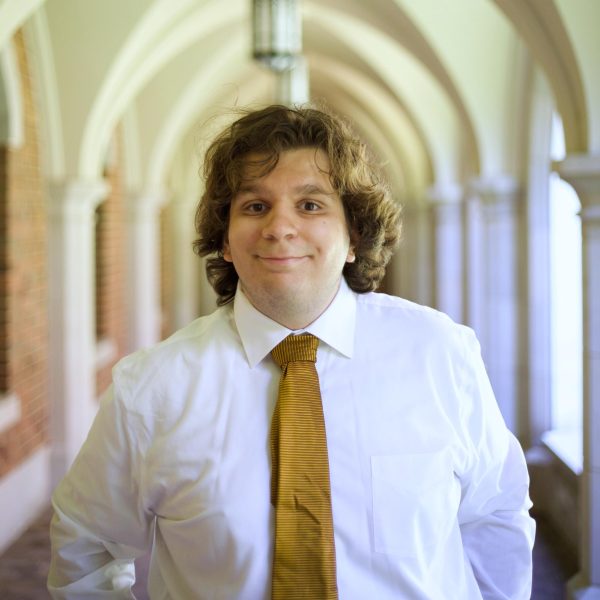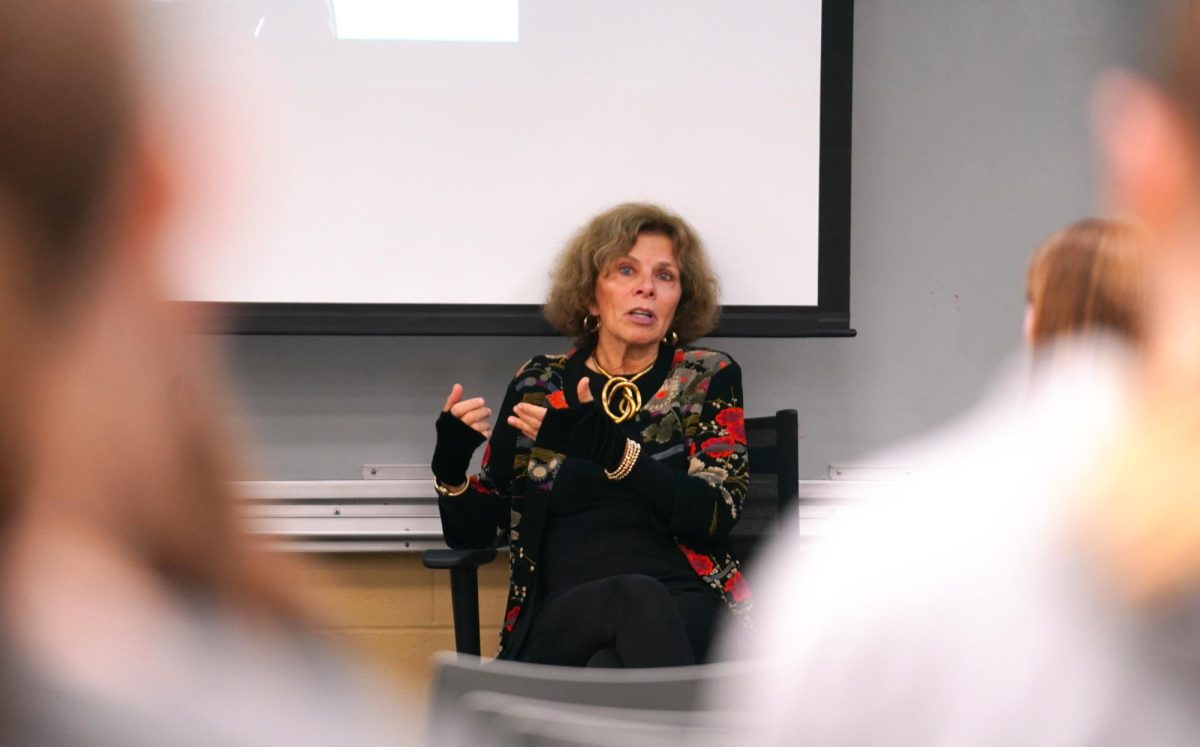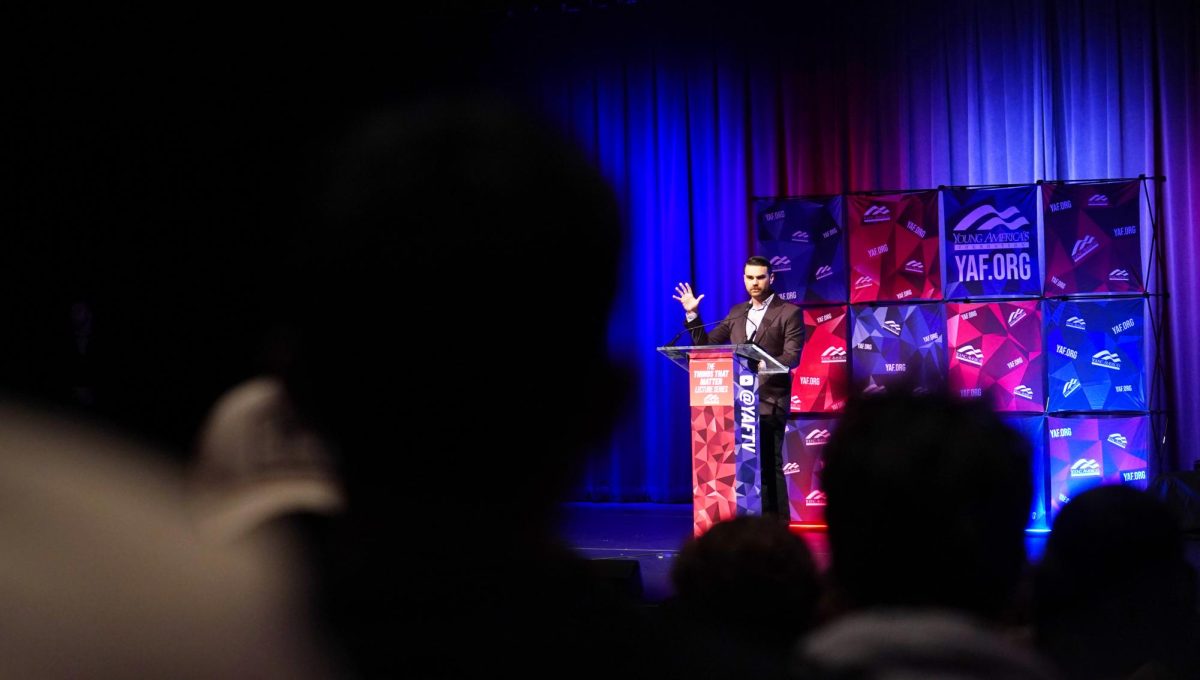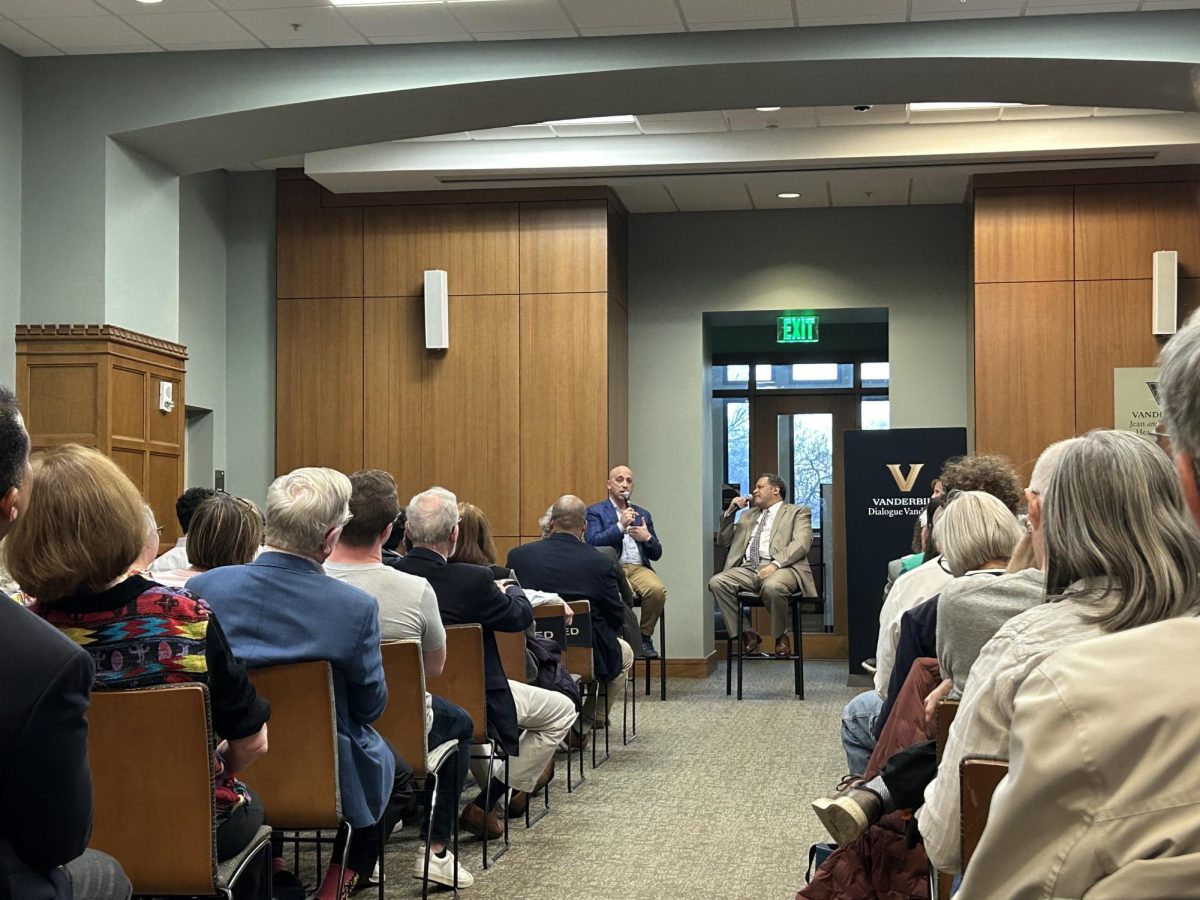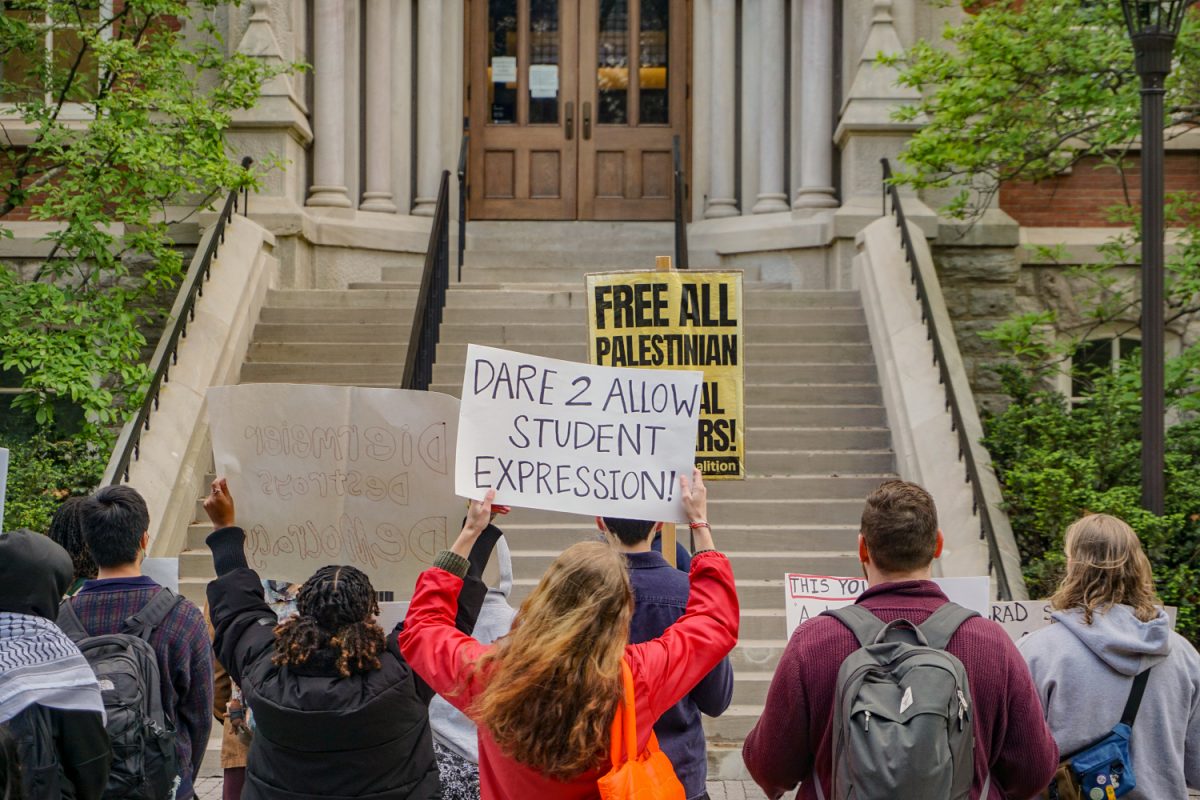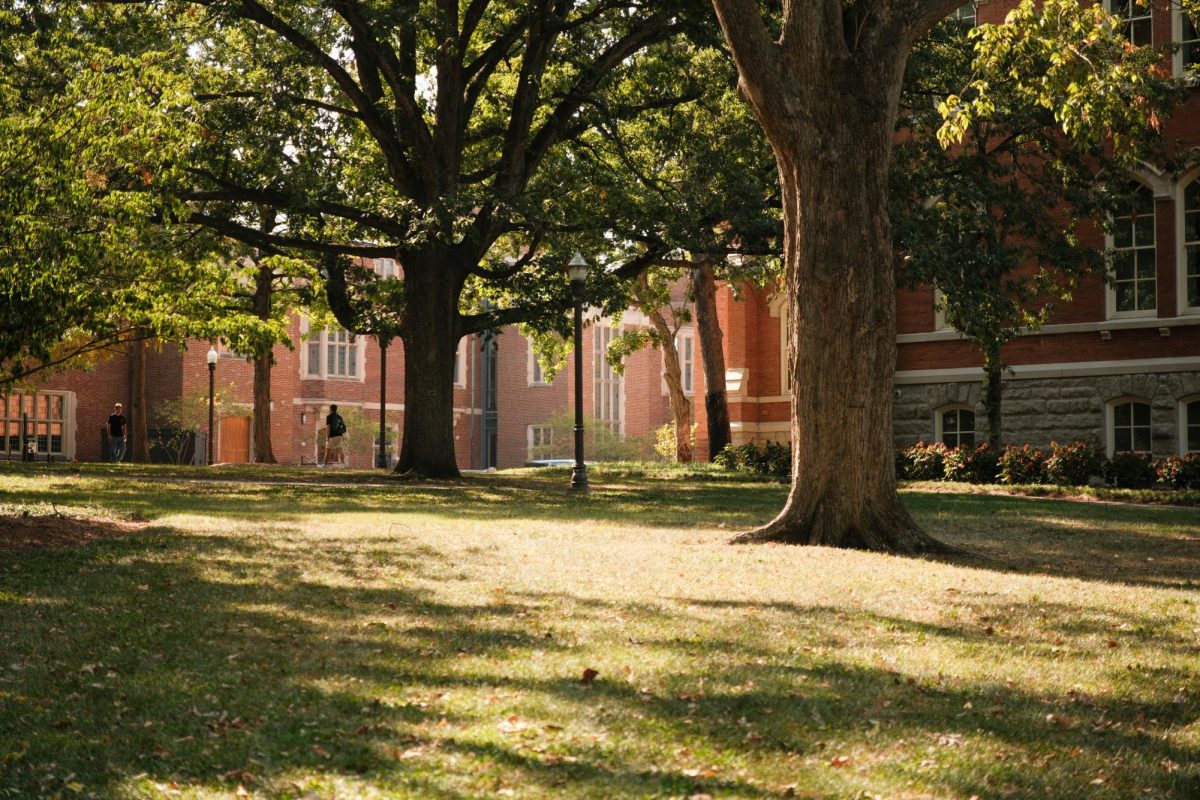Dialogue Vanderbilt and the Vanderbilt Project on Unity and American Democracy hosted a conversation with City University of New York professor Peter Beinart on Sept. 27. The talk was moderated by Jewish studies professor Allison Schachter and featured discussions on Zionism, Jewish politics in the United States and the Israel-Palestine conflict to an audience of 80 people.
Beinart is currently writing a book titled “Being Jewish After the Destruction of Gaza.” In the book, he questions what it means to be Jewish and argues that Israeli Jews do not have a right to supremacy over Palestinians.
Beinart said he identifies himself as a “cultural Zionist,” although he is often called an “anti-Zionist” because he does not support an independent Jewish state.
“This tradition [cultural Zionism] is worth holding on to because it says we believe in the possibility of a thriving Jewish culture within conditions of legal equality,” Beinart said. “In the longer term, I believe Israeli Jews will be better off, safer and more likely to flourish under conditions of legal equality. [The] system of Jewish supremacy that we have now is a system which imposes tremendous violence on Palestinians, and when you inflict this much violence, you also create the conditions that endanger yourself, as well.”
Beinart then discussed the conflicting elements of American Jews identifying as Zionists while also identifying as liberals in the U.S. He explained that it is contradicting to ask the U.S. government to promote equality while not asking Israel to do the same.
“Liberalism is about [supporting] the idea of equality under the law in the United States, and we are generally sympathetic to other minority groups that want legal equality,” Beinart said. “Yet, in Israel, you’re supporting a state project that is based on the idea that Jews have legal supremacy over Palestinians.”
Beinart explained that this division in ideology will eventually lead to a “process of choosing” Israel or liberalism by American Jews.
“The American Jews who are most wedded to progressive principles of equality will move more clearly into a position in which they are skeptical, if not outright opposed, to the idea of Jewish statehood and of political Zionism,” Beinart said. “The Jews for whom Israel and supporting Israel are the most important will essentially move outside of liberal spaces altogether into an alliance with the American right.”
Schachter mentioned that Israel is singled out for its actions against Palestinians without consideration of other countries that perform similar activities against minority groups on their land. She asked Beinart if he believes this difference has to do with the international community disliking Jews in power, to which he responded that the general reactions to Israel are isolated because Israel represents imperialist ideals of the past.
“Israel is singled out to some degree because it is seen as a remnant of colonialism or imperialism of an earlier era,” Beinart said. “Sometimes, the left is less animated by abuses committed by post-colonial governments than governments they see as colonial because they see them as the products of a kind of Western project.”
Israel recently announced that it was preparing for a possible ground invasion of Lebanon after repeated missile strikes from Hezbollah. Beinart said the only way to end Hezbollah’s retaliation would be for Israel to agree to a ceasefire in Gaza, but he said he believes Israel is very unlikely to do so.
“[Ending the war] would mean an acknowledgment that the war in Gaza was a failure, and it has been a failure this whole time,” Beinart said. “The war has laid waste to Gaza, but it has not achieved its goal of destroying Hamas.”
He continued by saying the war also failed in its goal to bring back hostages taken by Hamas on Oct. 7.
“Israel has rescued very few hostages, and many of the hostages have died because of the terrible conditions they’ve been in,” Beinart said. “Some of them are even seeming to perhaps have been killed by Israeli military fire.”
Beinart concluded that Israel has a “political problem,” which has led it to declare military conquests that Beinart believes will not solve the issue of Hezbollah’s attacks.
“[Israel] is occupying all of these people who lack basic rights, and unless [it] deals with their lack of basic freedoms, they are going to be a big problem for [Israel],” Beinart said. “You can’t solve that problem militarily, but this government only thinks in terms of military solutions.”
Beinart then expressed his belief that partitioning into separate Jewish and Palestinian states is not possible and “fundamentally unjust” to Palestinians who would not be allowed to return to their place of birth. He said a binational state would be “more stable and more peaceful” for the region.
“Self-determination does not have to mean sovereignty,” Beinart said. “Self-determination can’t be an excuse for supremacy for other people. I think a binational state that recognizes there are two nations who want certain kinds of autonomy should reflect the identities of both of these nations.”
Junior Areeba Alam said Beinart’s conversation was a “necessary” discussion on the Israel-Palestine conflict.
“I thought the speaker helped bring a very insightful and necessary conversation to campus and voiced an important message about what it means to advocate for Palestinian freedom as an American,” Alam said in a message to The Hustler.
First-year PhD student Abu Bakar Jamal found Beinart’s discussion “refreshing” as an international student who recently moved to the U.S.
“He’s quite articulate, and he didn’t try to add 500 different caveats to cater to American liberal sympathies or American ideas of non-violence,” Jamal said. “He went directly to the reality of this situation — that is, colonialism and [that] people who are colonized fight back.”
Ari Joskowicz, chair of the Jewish studies department, shared that Beinart had a meeting with students and faculty over lunch the same day, where they discussed the matters addressed later at the event. Joskowicz said the event showed that universities are capable of promoting meaningful dialogue among students with opposing ideas.
“In a climate where we often fear that we lost our ability to have difficult conversations, the discussion at the lunch showed what universities can do: encourage a type of thoughtful disagreement that seems impossible in any other space (never mind online),” Joskowicz said in an email to The Hustler. “I cannot say if anyone left the lunch meeting more or less convinced of any particular political position, but I am confident that they left it more hopeful that students with different ideas and diametrically opposed forms of activism on Israel and Palestine can learn together.”
Schachter echoed Joskowicz’s sentiments about Beinart’s talk as an example of how universities can host conversations around controversial issues.
“The event was an intellectually engaging and thought-provoking conversation packed with a diverse audience of students, faculty and community members,” Schachter said in an email to The Hustler. “Beinart encouraged people with ideological differences to listen to one another and publicly thanked those who disagree with his views for attending and engaging. These are precisely the kinds of conversations about difficult topics that are important to be holding on our campus.”

